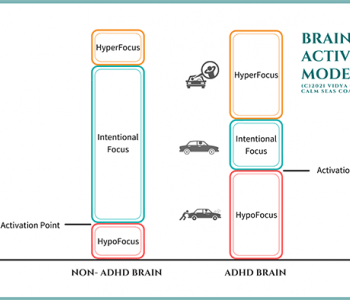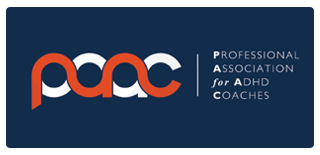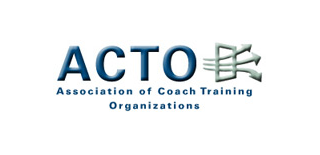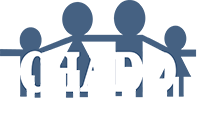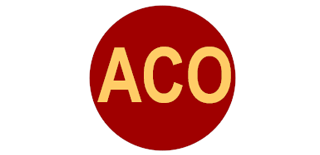
Identify Your Strengths and Make Them Stronger
ADHD Education
by David Giwerc, MCC, Founder and President, ADD Coach Academy
We live in a performance-oriented world. It’s also a world where too much emphasis is placed on identifying a person’s weaknesses and then focusing on improving the performance of those weaknesses.
This negative focus can take its toll on a person’s innate strengths, which may be downplayed or overlooked in the quest for “improvement.”
For adults, kids and families with ADHD, the effort involved in focusing our attention on our weaker areas of performance only exacerbates the challenges of ADHD.
If we’re constantly expected to focus on our performance challenges, we’re setting ourselves up for frustration, anxiety, and even immobilization – all of which inevitably lead to poor self-esteem.
Although this preposterous “weakness” philosophy dominates our world, it does not serve adults with ADHD well.
Based on over a decade of coaching professionals, executives, entrepreneurs, small business owners, filmmakers and parents with ADHD, I have consistently observed just the opposite:
People with ADHD improve their chances for success, as they define it, by focusing on their natural talents – the ones that consistently yield excellent performance – and then by developing a plan to make those talents even stronger.
Our brains work by means of electrical stimulation. We stimulate our brains by the dominant thoughts we are paying attention to, at any given moment.
I don’t know about you, but starting off my day by having to pay attention to what I don’t do well definitely does not stimulate my brain. A project that relates to my areas of weakness will not generate enough interest for me to sustain my attention with projects related to improving my weaknesses.
Understanding the power of what we pay attention to and how it impacts ADHD is critical to explaining the negative false perceptions that are created about ADHD.
For example, when I was a child, teachers would wonder, “Why is it that David can do his math assignment so well and so enthusiastically, but when he has to do a simple English reading and writing assignment, he won’t even take the first step toward completing it? He finds every reason for not doing it and the more we ask him, the more he resists. He’s just being lazy and does not want to do it.”
Negative labeling, using words such as: “lazy,” unwilling, spoiled” that accompanies a misperceived lack of performance is simply ignorance of how the ADHD brain works.
My own personal experience, and that of the hundreds of clients I’ve coached, has taught me how difficult it is for someone with ADHD to will him- or herself to focus on a boring task, subject or project, especially one that is associated with improving a weakness.
When I choose to start my day using my strengths to do an interesting task; it has historically resulted in a positive outcome.
Strengths-based pursuits:
- Energize me
- Make me feel more fulfilled
- Create a powerful feeling of accomplishment
- Raise my self-esteem
- Empowers me to take on additional assignments, including ones that are less desirable but need to be completed
In most academic, family and business situations, well-intentioned efforts to improve an ADHD individual’s weakness may instead lead to unsuccessful experiences. These create negative patterns of thinking. A constant focus on areas of difficulty may actually block a person with ADHD from being able to take any action.
When you repeatedly receive the message that your efforts are not “good enough,” to meet the established standards of performance, those bad feelings tend to spill over. You begin to associate a negative perception of your performance, in one area, with other areas as well.
If you have ADHD and want to maximize your energy and your focus, then it’s essential for you to:
- Identify both your strengths and your areas of interest
- Prioritize and integrate them into your life.
Identifying your areas of interest is the key to being able to successfully pay attention. The greater your ability to pay attention, the greater your chances of creating a foundation of success you can then replicate in other areas of your life.
To determine your strengths and your interests, first identify the tasks, goals, and/or activities that you consistently enjoy doing and are usually able to complete.
Remember, ADHD is a challenge of boredom and disinterest: The higher the boredom and disinterest, the less likely you are to complete it.
Once you’ve identified the things you do well and enjoy doing, ask yourself:
- What is it about this topic, goal, or task that’s interesting to me?
- When I’m focusing on this subject, what are the steps I always take that enable me to complete this task
After answering these questions, jot down a simple bulleted list of the steps.
Then take your list and create a reminder, for yourself, by making a colorful visual map; or an audio recording listing the steps.
When you know what it is that enables you to succeed in one area, you can then follow those “steps to success” in areas of challenge as well.
By identifying your strengths and your interests, you’ll uncover the clues to a system for organizing your life. This system will facilitate both sustained focus and consistent action – the keys to success for people with ADHD.
Introduction: ADHD Coaching
ADHD Education
Hello my name is David Giwerc. I am the Founder and President of the ADD Coach Academy. Since becoming a coach in 1994, I have been privileged and honored to witness thousands of adults and families with AD/HD take amazing leaps and bounds to become more fulfilled human beings.
This only can begin to happen when you become educated about your own ADHD. I don’t mean a general, textbook education of ADHD with medical language about the brain and the corresponding imbalance of neurochemicals. Unfortunately, that is how most health care professionals may have explained ADHD to you.
The kind of education that will empower people with ADHD to move forward is the kind of customized, individualized education that encourages you to explore and discover the specific situations where your own impairing challenges (inattention, impulsivity and hyper activity) of ADHD have impeded your ability to move forward.
To find out how you can get educated about your own ADHD in powerful proven ways, please go to Simply ADHD Program.
Link to Full Article
Awaken Your Buried Treasure
ADHD Education

Successful, fulfilling events in your life have brought you great joy and have strengthened your self-confidence.
Although you know these experiences exist, you have not been able to conjure them for a long time.
You have the ability to bring back these events to yourself at any time, but the knowledge of how to do so is buried in the depths of your subconscious.
You have been totally unaware of its existence.
This knowledge is your personal buried treasure.
- It can provide you with powerful wisdom and experience you can create again and again
- Knowing that you have an available, internal source of success will provide you with a stronger sense of confidence
- It will also encourage you to take action when you are entering unknown territory
After you discover your inner knowing and learn how to use it, you will find you have an empowering resource of knowledge. This knowledge reminds you of your strengths, personal triumphs and successful strategies you can incorporate into your life.
This knowledge also includes hidden values that once motivated you to pursue important goals.
How many experiences do you know of that can give you the confidence to take action and ignite those special sparks inside you?
Discovering and revisiting your buried treasure can be the impetus that will empower you to act on important goals.
Your inner knowing reminds you of past successes that can be recreated, possibly with better results.
What good will personal strength and knowledge do for you if they remain buried and concealed from your world?
The following questions can be very helpful in beginning the process of discovering your buried knowledge.
- What experiences in your personal, academic, family, professional, or business life have consistently:
- Made you feel good about yourself?
- Given you a strong sense of accomplishment?
- Been fulfilling?
- Brought you instant joy?
What is the first step you can to take to look for your buried treasure?
When you do find your buried treasure of “knowledge,” what elements do you need to identify and integrate into your life?
When you discover your inner knowing, you can identify specific reminders that you can use:
- Imagery
- A quotation
- A word
- A song
- Anything that will stand out in your mind and remind you to focus on your knowledge
If you don’t pay attention to your buried treasure, it will stay concealed.
It will remain your biggest barrier to opportunities for success.
Don’t deny what you have already successfully created and know. You have the antidote to stagnation and procrastination, inside you, waiting to be rediscovered so that you can become your true self!

Michael Phelps and the Power of a Mom’s Love
ADHD Education
Michael Phelps recently was in the news again breaking another world record, swimming the butterfly stroke. Michael Phelps also has a mom who always believed in his ability to do something well. Not everything, but at least one thing. She never let up letting him know that you don’t get satisfaction from working on making your weaknesses stronger. She never let him use his ADHD to keep him down.
I believe his story has a powerful message that all parents who have children with ADHD need to take note of and integrate into their families. It is the power of love and belief in others. It is the power of one person, his mom, to see only the good in her son.
When everyone else saw problems, it was the power of one mother to see possibilities. This was a result of a parent’s belief, love and confidence her son could do something well, even when other people in the academic world were pointing out to him the things that he didn’t do well.
You make the most out of your life by doing what you love, especially when you already do it well.
Think of all the swimmers, musicians, artists, writers and web designers who may have ADHD and do something well but are directed to spend their time, focus and energy on tasks that play to their weaknesses. Their brains are not getting the nourishment they need.
When you have ADHD, you don’t gain any kind of momentum, or positive self-esteem, by focusing on what you don’t do well. You get ahead in life by focusing on what you already do well and by doing it better and better.
I believe it was the power of one mom persevering relentlessly and always saying to her child, even as an adult: “You can and you will if you want to. Don’t let what you can’t do get in the way of what you already, brilliantly can. Just because you struggled in school you are not a loser. Just because the teachers didn’t understand how you are wired does not make you bad.
I know how you are wired and your brain has trillions of different ways of processing the world. If you can find what you love then I will love it also. I will always remind you of your love for swimming if it ignites both your head and your heart.”
Through the power of his Mom's love and Michael’s unrelenting determination and hyper focus on swimming, he transformed his natural talents into superhuman strength, and for his efforts we all got to witness the greatest swimmer in Olympic history. Thanks, Mom!!!!!

ADHD Diet
ADHD Education
Although there is no conclusive evidence that suggests a specific type of diet will effectively manage the challenges of ADHD, we do know that a balanced diet with all the essential food groups is important and that exercise is crucial to the effective management of ADHD. We have provided this information from the CHADD site so that you are aware of the latest developments in the area of diet and ADHD.
Although there is no conclusive evidence that suggests a specific type of diet will effectively manage the challenges of ADHD, we do know that a balanced diet with all the essential food groups is important and that exercise is crucial to the effective management of ADHD. We have provided this information from the CHADD site so that you are aware of the latest developments in the area of diet and ADHD.
Dietary Intervention
Dietary interventions (as contrasted with dietary supplements) are based on the concept of elimination, that one or more foods are eliminated from one's diet.
The most publicized of these diet elimination approaches is the Feingold Diet.2 This diet is based on the theory that many children are sensitive to dietary salicylates and artificially added colors, flavors, and preservatives, and that eliminating the offending substances from the diet could improve learning and behavioral problems, including ADHD. Despite a few positive studies, most controlled studies do not support this hypothesis.1 At least eight controlled studies since 1982, the latest being 1997, have found validity to elimination diets in only a small subset of children "with sensitivity to foods."1 While the proportion of children with ADHD who have food sensitivities has not been empirically established, experts believe that the percentage is small.1,3,4 Parents who are concerned about diet sensitivity should have their children examined by a medical doctor for food allergies.
Research has also shown that the simple elimination of sugar or candy does not affect ADHD symptoms, despite a few encouraging reports.1,5
Nutritional Supplements
Nutritional supplementation is the opposite of the dietary elimination approach. While the elimination diet assumes that something is unhealthy and should be removed from the diet, supplementation is based on the assumption that something is missing in the diet in an optimal amount and should be added. Parents who are concerned about possible missing nutrients should have their children examined by a medical doctor.
While the Food and Drug Administration (FDA) regulates the sale of prescription medication, the FDA does not strictly regulate the ingredients or the manufacturer claims about dietary supplements. Go to the FDA Web site ([url=http://www.fda.gov]http://www.fda.gov[/url]) to learn about existing regulations.
ADHD is a brain-based disorder where the chemistry of the brain (neurotransmitters) is not functioning as it should. Nerve cell membranes are composed of phospholipids containing large amounts of polyunsaturated fatty acids (omega-3 and omega-6). Studies have been conducted to examine the impact of omega-3 and omega-6 deficiency and the possible impact of fatty acid supplementation. Further controlled studies are needed.1
Recently, organizations exclusively promoting glyconutritional supplements have come into business and are widely publicizing their products. Glyconutritional supplements contain basic saccharides necessary for cell communication and formation of glycoproteins and glycolipids. These saccharides are glucose, galactose, mannose, N-acetylneuraminic acid, fucose, N-acetylgalactosamine, and xylose. Two small studies showed a reduction in inattention and hyperactivity symptoms after a program of glyconutritional supplements,6,7 but a third study found no impact of the supplements on symptoms.1
The following conclusions regarding various supplements are based on an extensive review of the scientific literature:1
National Institute of Mental Health Publication No. 3572
- Treatments with supplements that "are neither proven nor found lacking in definitive controlled trials" include essential fatty acid supplementation, glyconutritional supplementation, recommended daily allowance (RDA) vitamins, single-vitamin megadosage, and herbals.
- Megadose multivitamins (as opposed to RDA multivitamins) "have been demonstrated to be probably ineffective or possibly dangerous," and "have not only failed to show benefit in controlled studies, but also carry a mild risk of hepatotoxicity and peripheral neuropathy."
- "For children with demonstrated deficiencies of any nutrient (e.g., zinc, iron, magnesium, vitamins), correction of that deficiency is the logical first-line treatment. It is not clear what proportion of children have such a nutritional deficiency." The deficiency as a cause of ADHD without other symptoms has not been demonstrated.
- Amino acid supplementation does not appear to be "a promising area for further exploration."
- "No systematic data regarding ADHD efficacy could be found for hypericum, Gingko biloba, Calmplex, Defendol, or pycnogenol."
The information provided in this sheet was supported by Grant/Cooperative Agreement Number R04/CCR321831-01 from the Centers for Disease Control and Prevention (CDC). The contents are solely the responsibility of the authors and do not necessarily represent the official views of CDC. This fact sheet was approved by CHADDs Professional Advisory Board in 2003.

ADHD Test & Diagnosis
ADHD Education
Tests: Rating Scales and Checklists
Scales and checklists help clinicians obtain information from parents, teachers, and others about symptoms and functioning in various settings, which is necessary for an appropriate assessment for ADHD and treatment monitoring.
Symptoms must be present in more than one setting (for example, both at home and in school) to meet DSM-IV criteria for the condition. Such instruments are only one component of a comprehensive evaluation, which includes a medical examination and interviews.
According to the American Academy of Child and Adolescent Psychiatry the most commonly used scales are:
- Parent-completed Child Behavior Checklist
- Teacher Report Form (TRF) of the Child Behavior Checklist
- Conners Parent and Teacher Rating Scales
- ADHD Comprehensive Teacher Rating Scale (ACTRS)
- Barkley Home Situations Questionnaire (HSQ)
- Barkley School Situations Questionnaire (SSQ)
According to the Agency for Healthcare Research and Quality (AHRQ), formerly the Agency for Health Care Policy and Research, ADHD-specific rating scales are more accurate in distinguishing between children with and without the diagnosis of ADHD, than global, nonspecific questionnaires and rating scales that assess a variety of behavioral conditions.
Source: www.CHADD.org
ADHD Diagnosis
We know through research that a clinically valid diagnosis of ADHD can be reached through a comprehensive and thorough evaluation done by specially trained professionals using well-tested diagnostic interview methods. The key elements include a thorough history covering the presenting symptoms, including ruling out other physical or mental conditions that may have the same symptoms, possible co morbid conditions, as well as medical, developmental, school, psychosocial and family history. The criteria for diagnosis with ADHD specify that symptoms of inattention must have persisted for at least 6 months to a degree that is maladaptive and inconsistent with the child’s developmental level.
Proper diagnosis also avoids the possibility that these symptoms are occurring exclusively during the course of a pervasive developmental disorder, schizophrenia, or other psychotic disorder and are not better accounted for by another co-morbid condition or mental disorder (e.g., mood disorder, anxiety disorder, dissociate disorder, or a personality disorder.) The problems involved with accurate diagnosis of these illnesses are particularly acute in pediatric primary care settings, where many of these children are seen, because these evaluations take time and require multiple clinical skills, for which we have few appropriately trained professionals.
Diagnosis with children: Is it really ADHD?
Not everyone who is overly hyperactive, inattentive, or impulsive has ADHD. Since most people sometimes blurt out things they didn’t mean to say, or jump from one task to another, or become disorganized and forgetful, how can specialists tell if the problem is ADHD?
Because everyone shows some of these behaviors at times, the diagnosis requires that such behavior be demonstrated to a degree that is inappropriate for the person’s age. The diagnostic guidelines also contain specific requirements for determining when the symptoms indicate ADHD. The behaviors must appear early in life, before age 7, and continue for at least 6 months. Above all, the behaviors must create a real handicap in at least two areas of a person’s life such as in the schoolroom, on the playground, at home, in the community, or in social settings. So someone who shows some symptoms but whose schoolwork or friendships are not impaired by these behaviors would not be diagnosed with ADHD. Nor would a child who seems overly active on the playground but functions well elsewhere receive an ADHD diagnosis.
To assess whether a child has ADHD, specialists consider several critical questions: Are these behaviors excessive, long-term, and pervasive? That is, do they occur more often than in other children the same age? Are they a continuous problem, not just a response to a temporary situation? Do the behaviors occur in several settings or only in one specific place like the playground or in the schoolroom? The person’s pattern of behavior is compared against a set of criteria and characteristics of the disorder as listed in the DSM-IV-TR.
Diagnosis—Children
Some parents see signs of inattention, hyperactivity, and impulsivity in their toddler long before the child enters school. The child may lose interest in playing a game or watching a TV show, or may run around completely out of control. But because children mature at different rates and are very different in personality, temperament, and energy levels, it’s useful to get an expert’s opinion of whether the behavior is appropriate for the child’s age. Parents can ask their child’s pediatrician, or a child psychologist or psychiatrist, to assess whether their toddler has an attention deficit hyperactivity disorder or is, more likely at this age, just immature or unusually exuberant.
ADHD may be suspected by a parent or caretaker or may go unnoticed until the child runs into problems at school. Given that ADHD tends to affect functioning most strongly in school, sometimes the teacher is the first to recognize that a child is hyperactive or inattentive and may point it out to the parents and/or consult with the school psychologist. Because teachers work with many children, they come to know how “average” children behave in learning situations that require attention and self-control. However, teachers sometimes fail to notice the needs of children who may be more inattentive and passive yet who are quiet and cooperative, such as those with the predominantly inattentive form of ADHD.
Diagnosing ADHD in Adults
Many adults have been living with Adult Attention-Deficit/Hyperactivity Disorder (Adult ADHD) and don’t recognize it. Why? Because its symptoms are often mistaken for a stressful life, typically, adults with ADHD are unaware that they have this disorder—they often just feel that it’s impossible to get organized, to stick to a job, to keep an appointment. The everyday tasks of getting up, getting dressed and ready for the day’s work, getting to work on time, and being productive on the job can be major challenges for the ADHD adult.
Diagnosing an adult with ADHD is not easy. Many times, when a child is diagnosed with the disorder, a parent will recognize that he or she has many of the same symptoms the child has and, for the first time, will begin to understand some of the traits that have given him or her trouble for years—distractibility, impulsivity, restlessness. Other adults will seek professional help for depression or anxiety and will find out that the root cause of some of their emotional problems is ADHD. They may have a history of school failures or problems at work. Often they have been involved in frequent automobile accidents.
To be diagnosed with ADHD, an adult must have childhood-onset, persistent, and current symptoms. The accuracy of the diagnosis of adult ADHD is of utmost importance and should be made by a clinician with expertise in the area of attention dysfunction. For an accurate diagnosis, a history of the patient’s childhood behavior, together with an interview with his life partner, a parent, close friend, or other close associate, will be needed. A physical examination and psychological tests should also be given. Co morbidity with other conditions may exist such as specific learning disabilities, anxiety, or affective disorders.
A correct diagnosis of ADHD can bring a sense of relief. The individual has brought into adulthood many negative perceptions of himself that may have led to low esteem. Now he can begin to understand why he has some of his problems and can begin to face them.
Coaching helps clarify the challenges
Currently, there is no standardized testing that can clearly and accurately identify the diagnosis of ADHD. We do know that a clinically valid diagnosis of ADHD can be reached through a comprehensive and thorough evaluation done by specially trained professionals using well-tested diagnostic interview methods. We also know these evaluations take time and require multiple clinical skills, for which we have few appropriately trained professionals. When we do find well-trained professionals who know how to conduct a comprehensive evaluation, well-trained coaches can be instrumental in helping their clients identify patterns and situations where their impairing challenges of ADHD will tend to manifest.
Individuals seeking a proper diagnosis of ADHD who can accurately communicate how and where their challenges exist are providing a well trained diagnostician with a crucial and essential information that can dramatically improve the chances of the correct diagnosis of ADHD and the co-morbid or co-occurring conditions that are part of the diagnosis in a majority of clinical cases. conditions that shadow. The coach works with their client to insure that their description and explanation of their challenges are accurate and concise so that any clinician will understand the impairments that are holding them back.
Physicians and clinicians have reported back to us that working with clients to clearly identify their patient’s impairing has been extremely helpful in correctly identifying the ADHD and co morbid conditions Although coaches do not diagnose, their skills and knowledge in questioning and other coaching skills can extremely helpful in identifying the challenges and the accurately and concisely sharing that with the clinician. This can be the difference between an accurate diagnosis that leads to proper treatment and a dramatic improvement in the quality of their life.
Education is the Key and Foundation for Accurate Diagnosis & Treatment
If you don’t understand how you or your loved ones specific impairing challenges prevent progress in your lives, then a diagnostician will have a difficult time determining an accurate diagnosis. Their diagnosis is only as good as what you tell them. Your understanding of how and when your ADHD barriers manifest is essential information that you must clearly convey.
To significantly improve your chances for an accurate diagnosis, the Academy has created a proven program called “Simply ADHD”. We want to give you a comprehensive, foundational understanding of ADHD in clear, simple, non-medical language. In this program, you will learn to identify how and when your specific ADHD challenges appear in your life. We know, from many years of experience, the simple, unique models and tools we have developed will dramatically improve your understanding, communication, and relationships with those you live and work with every day.
This powerful knowledge can provide you with a strong foundation for a clear and correct description of your ADHD traits. This is one of the most important elements for the identification of an accurate diagnosis, crucial to your positive self development and growth. Ultimately, it can improve the quality of an ADHD person’s life. The Simply ADHD program is a major focus of the Academy’s global mission to empower every individual with ADHD to dramatically improve the quality of their lives.
We have also created a Free Success kit to provide you with an understanding of the benefits of an effective ADHD education and what it can do for you. We also have free Introduction to ADHD coaching teleclass, for you to learn more about our educational and ADHD coach training programs.
We know that the first step to launching your own success with ADHD is understanding your own ADHD. The Academy is an excellent place to start and we hope you will join us to learn more.

ADHD Signs & Symptoms
ADHD Education
We know education is the first essential step in the process of learning how to manage the individual challenges of ADHD. ADD coaching builds hope by educating clients about their own ADHD.
Almost all individuals with ADHD come to a coaching session needing to learn more about their own ADHD as well as get a clear understanding of ADHD in general. This is a direct result of the misinformation disseminated by the media and the lack of well trained clinicians and health care professionals who have the knowledge and ability to clearly explain what ADHD is and how in manifests in its different forms.
Coaches at the ADD Coach Academy are trained to not only focus on how it manifests in their clients’ lives, but to help them learn about themselves and the strengths and weaknesses of their ADHD. Then they assist their clients in developing strategies to minimize the ADHD challenges and optimize their ADHD strengths.
ADHD Signs & Symptoms
The principal characteristics of ADHD are inattention, hyperactivity, and impulsivity. These symptoms appear early in a child's life. Because many normal children may have these symptoms at a lower level, or the symptoms may be caused by another disorder, it is important that the child receive a thorough examination and appropriate diagnosis by a well-qualified professional.
Symptoms of ADHD will appear over the course of many months, often with the symptoms of impulsiveness and hyperactivity preceding those of inattention, which may not emerge for a year or more. Different symptoms may appear in different settings, depending on the demands the situation may pose for the child's self-control. A child who "can't sit still" or is otherwise disruptive will be noticeable in school, but the inattentive daydreamer may be overlooked. The impulsive child who acts before thinking may be considered just a "discipline problem". The child who is passive or sluggish may be viewed as merely unmotivated
According to the most recent version of the Diagnostic and Statistical Manual of Mental Disorders (DSM-IV-TR), there are three patterns of behavior that indicate ADHD. People with ADHD may show several signs of being consistently inattentive. They may have a pattern of being hyperactive and impulsive far more than others of their age. Or they may show all three types of behavior. This means that there are three subtypes of ADHD recognized by professionals.
These are:
- Predominantly hyperactive-impulsive type (that does not show significant inattention)
- Predominantly inattentive type (that does not show significant hyperactive-impulsive behavior) sometimes called ADD—an outdated term for this entire disorder
- Combined type (that displays both inattentive and hyperactive-impulsive symptoms)
Hyperactivity-Impulsivity
Hyperactive children always seem to be "on the go" or constantly in motion. They dash around touching or playing with whatever is in sight, or talk incessantly. Sitting still at dinner or during a school lesson or story can be a difficult task. They squirm and fidget in their seats or roam around the room. Or they may wiggle their feet, touch everything, or noisily tap their pencil. Hyperactive teenagers or adults may feel internally restless. They often report needing to stay busy and may try to do several things at once.
Impulsive children seem unable to curb their immediate reactions or think before they act. They will often blurt out inappropriate comments, display their emotions without restraint, and act without regard for the later consequences of their conduct. Their impulsivity may make it hard for them to wait for things they want or to take their turn in games. They may grab a toy from another child or hit when they're upset. Even as teenagers or adults, they may impulsively choose to do things that have an immediate but small payoff rather than engage in activities that may take more effort yet provide much greater, but delayed rewards.
Some signs of hyperactivity-impulsivity are:
- Feeling restless, often fidgeting with hands or feet, or squirming while seated
- Running, climbing, or leaving a seat in situations where sitting or quiet behavior is expected
- Blurting out answers before hearing the whole question
- Having difficulty waiting in line or taking turns
Inattention
Children who are inattentive have a hard time keeping their minds on any one thing and may get bored with a task after only a few minutes. If they are doing something they really enjoy, they have no trouble paying attention. But focusing deliberate, conscious attention to organizing and completing a task or learning something new is difficult.
Homework is particularly hard for these children. They will forget to write down an assignment, or leave it at school. They will forget to bring a book home, or bring the wrong one. The homework, if finally finished, is full of errors and erasures. Homework is often accompanied by frustration for both parent and child.
The DSM-IV-TR gives these signs of inattention:
- Often becoming easily distracted by irrelevant sights and sounds
- Often failing to pay attention to details and making careless mistakes
- Rarely following instructions carefully and completely losing or forgetting things like toys, or pencils, books, and tools needed for a task
- Often skipping from one uncompleted activity to another.
Children diagnosed with the predominantly Inattentive Type of ADHD are seldom impulsive or hyperactive, yet they have significant problems paying attention. They appear to be daydreaming, "spacey," easily confused, slow moving, and lethargic. They may have difficulty processing information as quickly and accurately as other children. When the teacher gives oral or even written instructions, this child has a hard time understanding what he or she is supposed to do and makes frequent mistakes. Yet the child may sit quietly, unobtrusively, and even appear to be working but not fully attending to or understanding the task and the instructions.
These children don't show significant problems with impulsivity and over activity in the classroom, on the school ground, or at home. They may get along better with other children than the more impulsive and hyperactive types of ADHD, and they may not have the same sorts of social problems so common with the combined type of ADHD. So often their problems with inattention are overlooked. But they need help just as much as children with other types of ADHD, who cause more obvious problems in the classroom.
Source: National Institute of Mental Health

Senate Resolution Declares September 7th AD/HD Awareness Day
David Giwerc
Did you know that September 7th, 2004 was officially designated as "National Attention Deficit Disorder Awareness Day"?
Senate Resolution Declares September 7th AD/HD Awareness Day
Date: 07-10-04
Contact: Attention Deficit Disorder Association (484) 945-2101
POTTSVILLE, PA – The Attention Deficit Disorder Association (ADDA) today announced that Senate Resolution 370, Designating September 7, 2004, as `National Attention Deficit Disorder Awareness Day' was passed by unanimous consent. The resolution sponsored by Senator Maria Cantwell (Washington) and co-sponsored by Senator Richard Durbin (Illinois), recognizes Attention Deficit/Hyperactivity Disorder (AD/HD) as a major public health concern and “expresses the sense of the Senate that the Federal Government has a responsibility to (a) endeavor to raise public awareness about AD/HD; and (b) continue to consider ways to improve access to, and the quality of, mental health services dedicated to the purpose of improving the quality of life for children and adults with AD/HD".
ADDA, the world’s leading source of information and support for Adult AD/HD, served as the sponsoring organization of the resolution and as a key resource for Senator Cantwell in developing the resolution. “It is our hope that September 7, 2004 will be the beginning of a nationwide awareness leading to greater understanding and acceptance of AD/HD,” said David, Giwerc, ADDA President. “We believe this is a monumental first step to encouraging all people in the United States to seek the appropriate information, diagnosis, treatment and support, potentially improving the quality of life for the millions of adults with AD/HD".
AD/HD is a neurobiological disorder that affects an estimated 3 percent to 7 percent of young school-age children and an estimated 4 percent of adults across racial, ethnic, and socioeconomic lines. Characterized by developmentally inappropriate impulsivity, inattention, and in some cases, hyperactivity, until recently AD/HD was thought to occur only in childhood. Scientific studies clearly indicate that AD/HD runs in families and suggest that genetic inheritance is an important risk factor, with between 10 and 35 percent of children with AD/HD having a first-degree relative with past or present AD/HD, and with approximately 50 percent of parents who had AD/HD having a child with the disorder.
"AD/HD is a real disorder that can have potentially devastating effects for individuals and their families when left undiagnosed and untreated.,” according to ADDA CEO Michele Novotni, Ph.D. “The good news is that with proper treatment, people with AD/HD can go on to lead tremendously successful, fulfilling lives. We thank Senator Cantwell and her colleagues for recognizing the importance of raising awareness about the disorder among the public.”
Several leading healthcare, education and consumer advocacy organizations have joined ADDA in supporting the Senate resolution. Among them are the National Mental Health Association, American Counseling Association, the American Psychiatric Association, Children and Adults with Attention Deficit/Hyperactivity Disorder and the Federation of Families for Children’s Mental Health. Plans are now underway for coordinating AD/HD Awareness Day activities with these and other groups throughout the country.
ADDA provides information, resources and networking opportunities to help adults with Attention Deficit/Hyperactivity Disorder (AD/HD) lead better lives. We provide hope, empowerment and connections worldwide by bringing together science and the human experience for both adults with AD/HD and professionals who serve them.
(here is the actual resolution)
108th CONGRESS
2d Session
S. RES. 370
Designating September 7, 2004, as `National Attention Deficit Disorder Awareness Day'.
IN THE SENATE OF THE UNITED STATES
June 7, 2004
Ms. CANTWELL (for herself and Mr. DURBIN) submitted the following resolution; which was referred to the Committee on the Judiciary
June 18, 2004
Reported by Mr. HATCH, without amendment
July 6, 2004
Considered and agreed to
RESOLUTION
Designating September 7, 2004, as `National Attention Deficit Disorder Awareness Day'.
Whereas Attention Deficit/Hyperactivity Disorder (also known as AD/HD or ADD), is a chronic neurobiological disorder, affecting both children and adults, that can significantly interfere with an individual's ability to regulate activity level, inhibit behavior, and attend to tasks in developmentally appropriate ways;
Whereas AD/HD can cause devastating consequences, including failure in school and the workplace, antisocial behavior, encounters with the justice system, interpersonal difficulties, and substance abuse;
Whereas AD/HD, the most extensively studied mental disorder in children, affects an estimated 3 percent to 7 percent (2,000,000) of young school-age children and an estimated 4 percent (8,000,000) of adults across racial, ethnic, and socioeconomic lines;
Whereas scientific studies clearly indicate that AD/HD runs in families and suggest that genetic inheritance is an important risk factor, with between 10 and 35 percent of children with AD/HD having a first-degree relative with past or present AD/HD, and with approximately 50 percent of parents who had AD/HD having a child with the disorder;
Whereas despite the serious consequences that can manifest in the family and life experiences of an individual with AD/HD, studies indicate that less than 85 percent of adults with the disorder are diagnosed and less than half of children and adults with the disorder are receiving treatment;
Whereas poor and minority communities are particularly underserved by AD/HD resources;
Whereas the Surgeon General, the American Medical Association (AMA), the American Psychiatric Association, the American Academy of Child and Adolescent Psychiatry (AACAP), the American Psychological Association, the American Academy of Pediatrics (AAP), the Centers for Disease Control and Prevention (CDC), and the National Institute of Mental Health, among others, recognize the need for proper diagnosis, education, and treatment of AD/HD;
Whereas the lack of public knowledge and understanding of the disorder play a significant role in the overwhelming numbers of undiagnosed and untreated cases of AD/HD, and the dissemination of inaccurate, misleading information contributes to the obstacles preventing diagnosis and treatment of the disorder;
Whereas lack of knowledge, combined with the issue of stigma associated with AD/HD, has a particularly detrimental effect on the diagnosis and treatment of AD/HD;
Whereas there is a need to educate health care professionals, employers, and educators about the disorder and a need for well-trained mental health professionals capable of conducting proper diagnosis and treatment activities; and
Whereas studies by the National Institute of Mental Health and others consistently reveal that through proper and comprehensive diagnosis and treatment, the symptoms of AD/HD can be substantially decreased and quality of life for the individual can be improved: Now, therefore, be it
Resolved, That the Senate--
(1) designates September 7, 2004, as `National Attention Deficit Disorder Awareness Day';
(2) recognizes Attention Deficit/Hyperactivity Disorder (AD/HD) as a major public health concern;
(3) encourages all people of the United States to find out more about AD/HD and its supporting mental health services, and to seek the appropriate treatment and support, if necessary;
(4) expresses the sense of the Senate that the Federal Government has a responsibility to-
(A) endeavor to raise public awareness about AD/HD; and
(B) continue to consider ways to improve access to, and the quality of, mental health services dedicated to the purpose of improving the quality of life for children and adults with AD/HD; and
(5) requests that the President issue a proclamation calling on Federal, State and local administrators and the people of the United States to observe the day with appropriate programs and activities.


